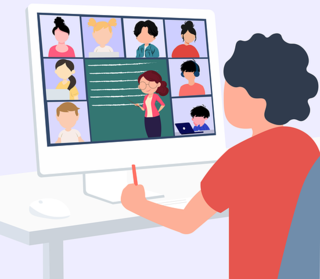Education
School Closures and Children's Mental Health
Tips for parents during the COVID-19 pandemic.
Posted February 6, 2021

School closures due to the COVID-19 outbreak have globally affected upwards of 90 percent of the world's students.
School routines are important for children. The structure, education, physical activity and social interactions with teachers and peers helps them learn how to cope with everyday life. Children with learning, emotional or behavioral needs also benefit from the school setting. Upwards of 80 percent of children rely on school-based services, like special education classes, school counseling, breakfast and lunch plans, before and aftercare, and other supportive programs.
So, for children, school closures during the pandemic are not just a disconnect with the educational system of teaching. For many, it means a lack of access to the resources that are enormously vital for day-to-day functioning.
What research says
The situation the world finds itself in with COVID-19 and school closures requires us to learn as we go. While several reports show an increase in anxiety, depression, and other mental health issues in children during school closures, little or no large studies have been performed to understand more during the pandemic.
What to do now
- The World Health Organization (WHO) advises parents to discuss COVID-19 with their children in an honest and age-appropriate way. From prior studies on disasters, easing children's concerns or confusion can ease symptoms of anxiety and depression. Talking early and often about the pandemic is a protective factor for children's mental health. So, make time to share things with your child on a regular basis.
- Parents should help children home from school create a daily routine. There should be hours for school but also predictable meal times, leisure time and bedtimes. Don't forget to have your child do chores and have regular responsibilities during the pandemic.
- Make it a point to allow for longer use times for computers and smartphones, so children with limited outdoor activities can communicate with their friends and family. It's important to measure the time spent connecting and not the time spent on devices.
- Children need to deepen their resilience now so they can return to a pre-disaster level of well-being when the pandemic ends. Set up special times to be with children together, and also create some alone time with just you and your child, separate from other family members. Doing so can help you bond with your child and help him or her feel safe, protected and understood. Strengthening resiliency now will promote post-disaster adjustments later.
- For those children who need special services, counseling or other supportive means, reaching outside to mental health professionals, community organizations and local food banks will help fill the void students are missing due to school closures.


